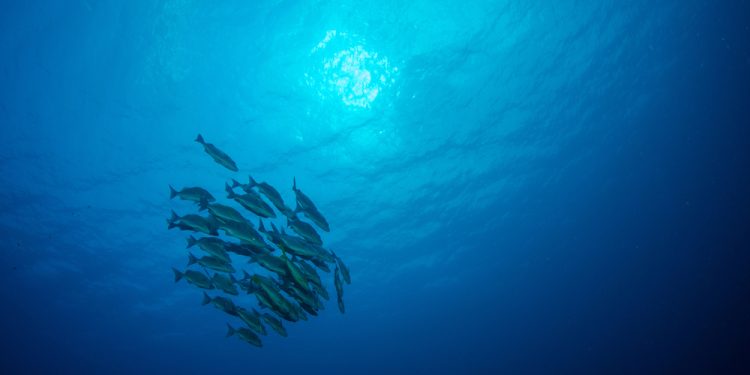Climate change redirects the distribution of marine species in the Mediterranean – A recent study by the Spanish Institute of Oceanography (IEO-CSIC) has explored changes in the spatial distribution of 102 demersal species in the Mediterranean over the last 25 years, highlighting how these movements are closely correlated with climate variations.
Published in the journal Ecological Indicators, the study reveals that 42 of these species have altered their distribution over the period considered. The Mediterranean Sea, known to be one of the most vulnerable ecosystems in the world due to various anthropogenic impacts, including high climate risk, is undergoing significant changes in the ecology of marine species.
Surprisingly, 26 of the 42 species analysed have moved in unexpected directions. Contrary to expectations that would see species migrate northwards in search of more temperate conditions – a phenomenon known as meridionalisation – some of them instead moved south and south-west, heading towards warmer waters.
This unusual pattern has been associated with the high rate of climate change, indicating that species are seeking areas where warming is slower to better adapt.
The researchers observed that while areas to the north are warming very rapidly, becoming almost inhospitable for some species, regions to the south show less intense warming, becoming more welcoming refuges. This explains why the movement does not follow traditional predictions based only on average temperature changes, but is influenced by the speed of warming – a concept that examines how temperatures change spatially and temporally.
Among the species that have shown significant changes in their distribution patterns are the four-eyed turbot (Lepidorhombus boscii), the zerro (Spicara smaris) and the dogfish (Scyliorhinus canicula), which have not only moved south-west towards warmer waters, but have also sought shallower waters closer to the coast. These southward moves also involve a gradual shift to shallower areas, adapting to the new environmental conditions.
These data offer crucial insights into the management of fish stocks, suggesting the need to integrate climate change adaptation strategies into management plans. Adapting these strategies is essential to sustain the resilience of marine species and the communities that depend on them.
The project benefited from the support of various programmes and funds, including the Biodiversity Foundation of the Ministry for Ecological Transition and Demographic Challenge, the AXA Research Fund, and the Spanish Research Agency, demonstrating the importance of multi-sectoral collaboration to address emerging environmental challenges in the Mediterranean.
Climate change redirects the distribution of marine species in the Mediterranean








